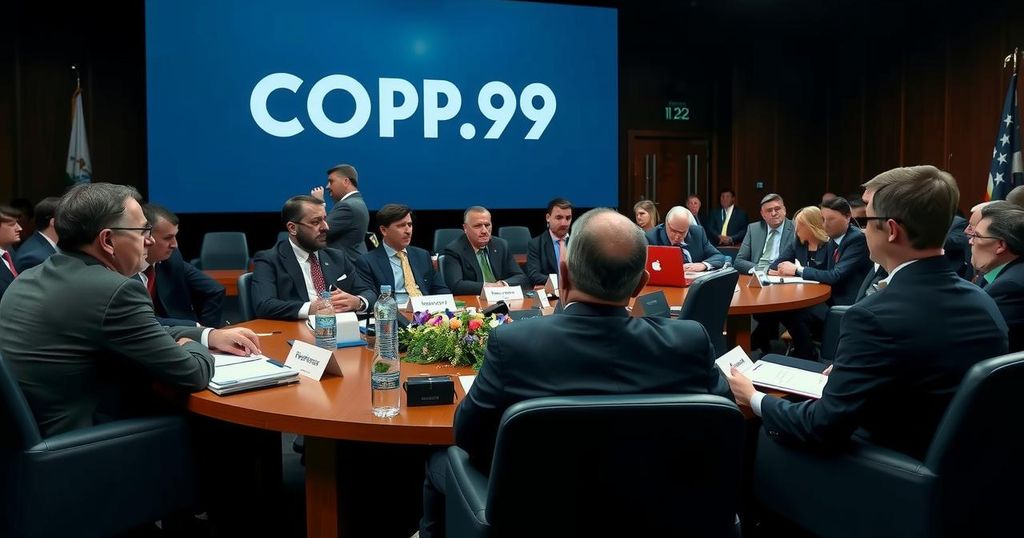Negotiators at COP29 are pushing for clear agreements regarding climate finance after the G20 summit outlined the necessity for substantial funding to aid developing nations. Despite acknowledging the need for trillions, key issues regarding funding sources and obligations remain unresolved, complicating negotiations as countries seek to adhere to prior commitments to reduce fossil fuel dependence.
Negotiators at COP29 are engaged in intense discussions to resolve critical issues following the G20 summit, which highlighted the necessity of substantial financial assistance for developing nations. With only three days remaining in the conference, diplomats in Azerbaijan are attempting to move past the G20’s ambiguous declaration, which, while acknowledging the need for trillions in climate funding, fell short of concrete directives and recommendations regarding a transition from fossil fuels. Yalchin Rafiyev, the lead negotiator, expressed optimism regarding the G20 statement, while UN climate chief Simon Stiell emphasized the urgency for nations to find common ground on all issues. Brazil’s President Luiz Inacio Lula da Silva, as the host of the upcoming climate talks, urged substantial progress in Baku, asserting that actions in Azerbaijan cannot be postponed until next year’s conference. However, challenges remain as rich countries are encouraged to increase their commitment of $100 billion annually to aid developing nations in both climate adaptation and a transition to clean energy. Disputes continue over the specifics of financial contributions, the sources of funding, and the types of financing to be included in any agreement. The G20 statement did note the necessity for a substantial increase in climate finance but failed to clarify how this should occur or from whom. Representatives from developing nations voiced their concerns; for instance, Adonia Ayebare from the G77+China group expressed discomfort with the vague language surrounding funding sources, insisting on public grants rather than loans. Meanwhile, Fiji’s Deputy Prime Minister, Biman Prasad, pointed out the disparity between the required funding for climate initiatives and the vast expenditures on fossil fuel subsidies. Negotiations have been further complicated by resistance from countries such as Saudi Arabia to acknowledge prior commitments to decreasing fossil fuel dependency. EU climate envoy Wopke Hoekstra made a call for cohesive global action, affirming that regressions in climate commitments must be avoided.
The ongoing COP29 conference in Azerbaijan serves as a critical platform for international negotiators to address climate change challenges, especially in light of the escalating financial needs for developing nations. The G20 summit in Rio de Janeiro recently highlighted the requirement for significant climate financing, yet it left unanswered questions regarding the responsibilities of nations and the funding mechanisms to be utilized. With a backdrop of climate urgency and debates over fossil fuel reliance, the discourse at COP29 is pivotal for setting future climate policies.
In summary, COP29 remains at a crucial junction as negotiators strive to overcome obstacles that have surfaced following the G20 summit’s lack of clear directives. The pressing need for increased climate finance, the determination of accountability for these funds, and the global commitment to reduce fossil fuel dependence are central issues. As the deadline looms, stakeholders are called upon to reach consensus to ensure meaningful progress in combating climate change.
Original Source: www.rfi.fr






